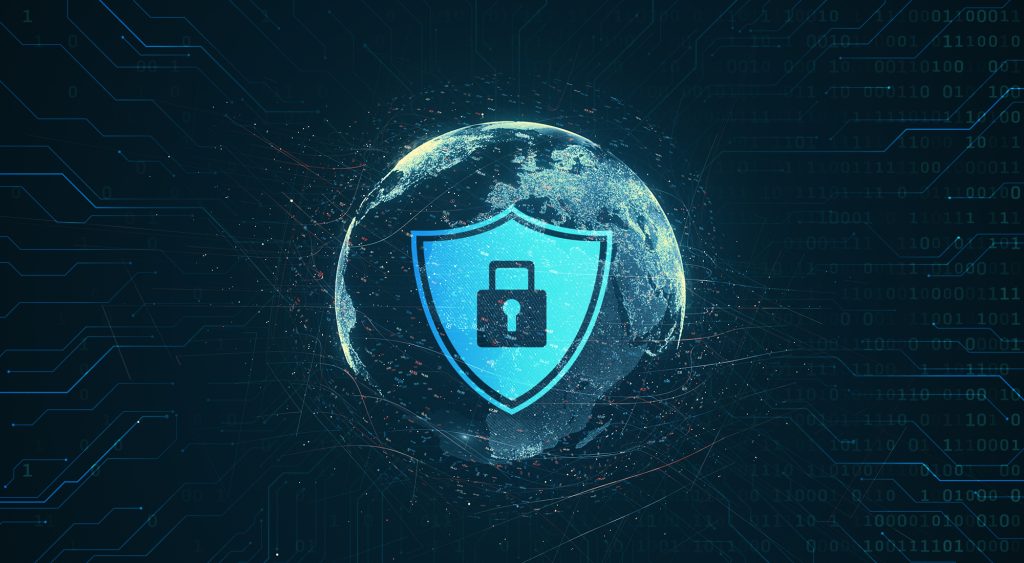
With the rapid increase in digital threats, cybersecurity has become a critical industry for protecting data and systems. As organizations prioritize security, career opportunities in cybersecurity are expanding. But how do you know if this field is a good fit for you? In this guide, we’ll explore what a career in cybersecurity entails, the skills required, and the career growth potential it offers.
Why Cybersecurity is a Growing Field
Cybersecurity has transformed from a specialized function to an essential industry priority. With data breaches and cyber-attacks on the rise, organizations in every sector need skilled professionals to safeguard their systems. The demand for cybersecurity experts is high and growing, especially as industries like finance, healthcare, and government increase their digital operations.
According to recent reports, the cybersecurity industry is expected to grow by more than 10% annually, which reflects both the escalating volume of threats and the value of secure digital infrastructure. This growth means a wealth of job opportunities, making cybersecurity an attractive field for tech-savvy individuals who enjoy problem-solving and critical thinking. Whether you’re just starting out or looking to shift careers, the rising demand and potential for impactful work make cybersecurity a worthwhile consideration.
Cybersecurity Job Roles and Specializations
Cybersecurity offers diverse career paths, allowing professionals to choose roles that match their skills and interests. Here are some of the top specializations in cybersecurity:
Security Analyst
Security Analysts are the backbone of cybersecurity teams. They monitor networks for security breaches, investigate incidents, and implement protective measures. Often, they also perform vulnerability assessments to spot weak points in an organization’s system, helping to prevent cyber-attacks before they occur. A Security Analyst role is ideal for those who enjoy analyzing data and developing strategies for risk mitigation.
Penetration Tester
Penetration Testers, or ethical hackers, assess systems by simulating cyber-attacks. By attempting to breach security measures, they identify and address vulnerabilities before malicious actors can exploit them. This role requires creativity and deep technical knowledge. It’s a great fit for individuals who enjoy thinking like a hacker to outsmart real-world threats.
Cybersecurity Consultant
Cybersecurity Consultants work with multiple organizations, providing expertise on security best practices and helping develop customized security solutions. This role often requires excellent communication skills, as consultants must present findings and recommendations to various teams and stakeholders. If you enjoy variety and advising others, a consultant role may be the right fit.
Skills and Qualifications for Cybersecurity Careers
To thrive in cybersecurity, certain skills are essential. Technical skills like knowledge of programming, network security, and cloud computing are foundational, but soft skills also play a critical role. Here are some key skills and qualifications needed:
- Technical Skills: Knowledge of network protocols, programming languages (e.g., Python, Java), and cybersecurity tools (e.g., SIEM, firewalls).
- Problem-Solving Abilities: Cybersecurity involves thinking critically to identify and resolve issues efficiently.
- Attention to Detail: Small details can mean the difference between a secure system and a vulnerable one.
- Certifications: Certifications like CompTIA Security+, Certified Ethical Hacker (CEH), and Certified Information Systems Security Professional (CISSP) are valuable in advancing your cybersecurity career.
These skills and qualifications help ensure professionals can tackle a wide range of security challenges, making them essential for those pursuing a successful career in cybersecurity.
Assessing if Cybersecurity is the Right Fit for You
If you’re considering cybersecurity, think about your interests, strengths, and career goals. Cybersecurity roles often involve high-stakes problem-solving, fast-paced environments, and a commitment to continual learning. Ask yourself the following:
- Do you enjoy staying updated on technology trends?
- Are you comfortable with troubleshooting and thinking critically?
- Do you have a keen eye for detail and enjoy analytical tasks?
A “yes” to these questions may indicate a natural alignment with cybersecurity. Ultimately, this field suits individuals who are tech-focused, resilient, and enjoy tackling complex issues to protect valuable information.
Career Advancement and Opportunities in Cybersecurity
The cybersecurity field offers numerous advancement opportunities. As you gain experience and knowledge, you can progress to senior roles like Security Manager, Chief Information Security Officer (CISO), or specialize further as a Threat Intelligence Analyst or Cloud Security Expert.
Continuing education and certification are critical for career growth. Staying updated with industry trends and advancing your skills in areas like AI and machine learning can open doors to more specialized, high-paying positions. The industry also values certifications such as CISSP and CISM for management roles, making them worth considering if you’re aiming for leadership in cybersecurity.
With its ever-expanding opportunities and evolving technology landscape, a cybersecurity career offers significant growth potential and rewards dedicated professionals who are passionate about securing the digital world.
Cybersecurity Career Resources and Next Steps

If you’re interested in pursuing a career in cybersecurity, here are some recommended resources and steps to help you get started:
- Online Courses
Platforms like Coursera, Udemy, and edX offer comprehensive cybersecurity courses for all levels. Look for introductory courses on topics like network security, ethical hacking, and data protection to build a strong foundation. - Certifications
Earning certifications can set you apart and enhance your credibility in the field. Start with entry-level certifications like CompTIA Security+ to gain fundamental skills, then consider intermediate and advanced certifications, such as Certified Ethical Hacker (CEH), Certified Information Systems Security Professional (CISSP), and Certified Information Security Manager (CISM) for specialized career paths. - Internships and Entry-Level Positions
Many companies offer cybersecurity internships or junior roles. Look for positions like Security Analyst Intern or Cybersecurity Technician to gain practical experience and build your resume. - Networking and Mentorship
Joining professional groups and attending cybersecurity conferences can provide valuable networking opportunities. Look for groups like ISSA (Information Systems Security Association) or (ISC)², where you can connect with professionals and seek mentorship from industry experts. - Continuous Learning
The cybersecurity field is constantly evolving. Staying updated on the latest cybersecurity trends, tools, and threats is essential. Subscribe to cybersecurity blogs, read research papers, and follow industry experts on social media to keep your knowledge current.
Taking these steps can help you break into cybersecurity, develop essential skills, and set you on a successful career path. This career requires dedication, but for those passionate about technology and protecting digital assets, it can be incredibly rewarding.
Final Thoughts: Embracing a Career in Cybersecurity
Pursuing a career in cybersecurity offers the chance to work in an essential, high-demand field with diverse roles that cater to different skill sets and interests. Whether you’re interested in defending networks, developing secure software, or consulting for businesses, cybersecurity has a place for you.
As technology becomes more integrated into every part of our lives, the need for skilled cybersecurity professionals will only grow. By taking proactive steps to build your knowledge and skills, you’ll not only secure a rewarding career but also contribute to a safer digital world.
If you’re ready to make a difference and are excited by the challenges of cybersecurity, this career could be the right fit for you.
Overcoming Challenges in a Cybersecurity Career
Like any field, cybersecurity comes with its unique set of challenges. However, understanding these can help you prepare for a successful and fulfilling career. Here are some of the key challenges cybersecurity professionals face and ways to overcome them:
- Constantly Changing Threat Landscape
Cyber threats evolve quickly, with new types of attacks emerging all the time. Staying updated can be challenging but is crucial for protecting systems effectively. Regularly updating your knowledge through courses, certifications, and industry news can help you stay ahead. Embracing a mindset of lifelong learning will make it easier to adapt to these changes and develop innovative solutions. - High-Stakes Pressure
Cybersecurity professionals often work in high-stress environments, especially when dealing with real-time security incidents or data breaches. Effective stress management techniques, such as taking breaks, maintaining a healthy work-life balance, and practicing mindfulness, can help mitigate burnout. Many cybersecurity roles also offer collaborative work environments, where team support can alleviate some of this pressure. - Complex Problem-Solving Requirements
Cybersecurity requires logical thinking and meticulous attention to detail. Encountering complex problems is common, and solutions aren’t always immediately clear. Building strong analytical and problem-solving skills is essential for success. Additionally, using a step-by-step approach to break down issues and collaborating with peers can make tackling these challenges more manageable. - Balancing Security and Usability
Often, security measures can impact user experience, making it challenging to strike a balance between protection and convenience. Cybersecurity professionals need to work closely with other departments, like product development, to create solutions that meet both security and usability requirements. Gaining insight into user-centered design and effective communication with cross-functional teams can help address this challenge. - Resource Constraints
Some organizations may have limited resources for cybersecurity, which can impact how much protection can be implemented. In these cases, prioritizing critical security measures and developing cost-effective strategies become essential skills. Effective budgeting, planning, and knowledge of open-source cybersecurity tools can enable you to make a meaningful impact even with fewer resources.
Tips for Building a Long-Term Career in Cybersecurity
Cybersecurity is a field with vast potential for growth and specialization, but building a lasting career requires strategy and commitment. Here are some tips to help you sustain and advance your career:
- Build a Solid Foundation
Start by mastering fundamental skills in networking, operating systems, and programming. A solid technical foundation will enable you to understand complex security concepts as you progress in your career. - Specialize Over Time
Once you have a few years of experience, consider specializing in areas like incident response, cloud security, or threat intelligence. Specializing can open doors to higher-level positions and make you an expert in a particular niche. - Stay Certified and Educated
The cybersecurity field values certifications and continuous learning. Earning certifications like CISM, CISSP, and Certified Information Security Auditor (CISA) will demonstrate your commitment and expand your skill set. - Develop Soft Skills
Communication, teamwork, and leadership skills are essential, especially as you advance. Many cybersecurity roles involve explaining complex technical concepts to non-technical colleagues, so being able to communicate clearly and concisely is crucial. - Network and Seek Mentorship
Networking can help you find new job opportunities, learn from others, and stay updated on industry trends. Seeking mentorship from experienced professionals can also provide valuable insights and guidance for career development. - Embrace Emerging Technologies
Cybersecurity intersects with fields like AI, machine learning, and cloud computing. Staying informed about these technologies can position you as a forward-thinking professional who is prepared for future challenges in the cybersecurity landscape.
The Future of Cybersecurity Careers
The future of cybersecurity is promising, with rapid technological advancement and a constant need for skilled professionals. As organizations adopt digital transformation, they will require stronger security measures to protect sensitive data and maintain trust with customers. Here are some trends shaping the future of cybersecurity careers:
- Increased Demand for AI-Driven Security Solutions
AI and machine learning are being used to enhance threat detection and automate responses to security incidents. As these technologies continue to evolve, cybersecurity professionals with knowledge in AI and data science will be highly sought after. - Greater Emphasis on Cloud Security
With more businesses moving to cloud-based infrastructures, securing cloud environments has become critical. This shift opens opportunities for cloud security specialists who can address the unique challenges of protecting cloud data. - Focus on Privacy and Regulatory Compliance
Data privacy regulations, such as GDPR and CCPA, have heightened the need for compliance expertise. Cybersecurity professionals specializing in data privacy and regulatory standards will play a key role in helping companies navigate these requirements. - Remote and Hybrid Work Security
With remote work on the rise, securing home networks and remote access has become a priority for companies. This shift increases demand for professionals who understand the nuances of securing distributed workforces and remote devices.
The future of cybersecurity careers is vibrant and dynamic, with numerous pathways for growth and innovation. Embracing these trends can help you remain competitive in the job market and contribute meaningfully to the evolving landscape of digital security.
In Summary: Pursuing a Career in Cybersecurity
Cybersecurity offers a unique blend of challenges, high demand, and growth opportunities. For those interested in technology, problem-solving, and defending critical systems from cyber threats, it’s a career that can be both impactful and rewarding. By developing essential skills, exploring various specializations, and staying updated with industry advancements, you can build a long-lasting, fulfilling career in cybersecurity.
If you’re ready to take the first step, start by building your foundational skills, pursuing certifications, and networking with professionals in the field. Cybersecurity offers a diverse range of roles, a strong sense of purpose, and the potential to make a real difference in a digital world that needs protection. Whether you’re just beginning your career or considering a shift, cybersecurity may be the path to a rewarding future.
Conclusion: Is Cybersecurity Your Ideal Career Path?
A career in cybersecurity can be fulfilling for those who enjoy technology, problem-solving, and protecting systems from threats. With high demand and various specialization options, it’s an exciting field that offers both job security and a sense of purpose. If you’re intrigued by the idea of working in cybersecurity, consider exploring this career path. Investing in the necessary skills and certifications could open the door to a rewarding career in this growing field.
Written By Seema Kanojiya







